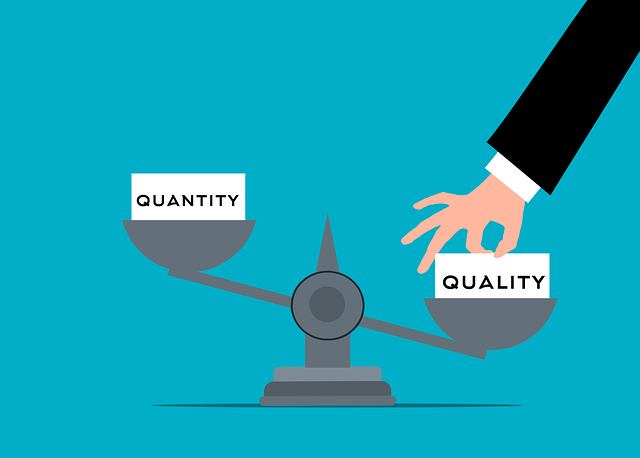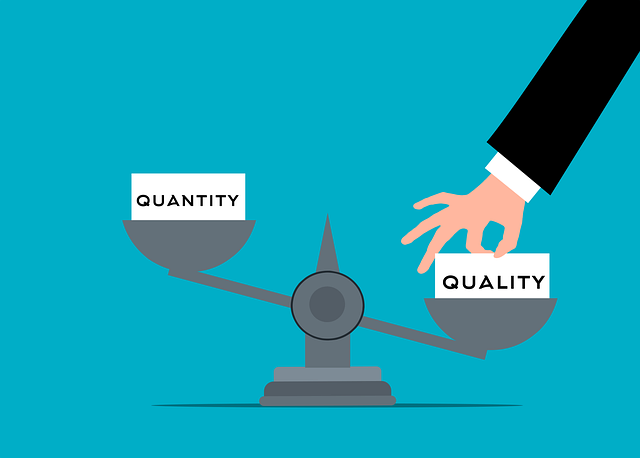TL;DR:
Wegovy (semaglutide) and Ozempic are prescription weight management drugs, with Wegovy focusing on sustained fullness through gastric emptying regulation and Ozempic primarly aiding type 2 diabetes control while also offering benefits for body weight.
– Patient Suitability:
– Wegovy: Suitable for injection-preferring patients, those struggling with adherence, and chronic weight management in adults with obesity or overweight plus related conditions.
– Ozempic: Ideal for diabetic patients aiming to improve metabolic health and manage weight; indicated for improving glycemic control and dual therapy for obesity and diabetes control.
– Effectiveness:
– Wegovy shows superior results (14-17% weight loss) over Ozempic (7-10%) in clinical studies, with both mimicking natural appetite and glucose regulators.
– Side Effects:
– Distinct differences in gastrointestinal symptoms (e.g., nausea, vomiting) and hypoglycemia between the two medications. Ozempic users often report less severe GI distress.
– Convenience & Administration:
– Wegovy: Weekly injection, potentially more gastrointestinal issues initially.
– Ozempic: Seamless once-weekly dosing schedule with insulin analog formulation for smoother blood sugar control.
– Cost:
– Wegovy: More expensive upfront but long-term savings potential.
– Ozempic: More budget-friendly through generics and insurance plans, making it more accessible.
– Long-Term Success:
– Both effective when used as prescribed, requiring commitment to diet, exercise, and overall health management for substantial and sustained weight loss.
“Exploring the Suitability of Wegovy vs. Ozempic for Patients: A Comprehensive Guide to Weight Management Treatments. This article delves into the comparative effectiveness, accessibility, and patient experiences of Wegovy and Ozempic, two prominent weight management medications. We examine who benefits most from each, their unique mechanisms, clinical outcomes, potential side effects, administration ease, cost implications, and long-term success rates, offering a detailed analysis for healthcare professionals and patients considering these game-changing treatments.”
Understanding Wegovy and Ozempic: A Comprehensive Overview

Wegovy and Ozempic are both prescription medications designed for weight management, but they work in distinct ways. Wegovy (semaglutide) is a novel injectable medication that mimics a natural hormone called GLP-1, which helps regulate blood sugar levels and increases feelings of fullness, leading to reduced food intake. Ozempic (semaglutide) is another GLP-1 receptor agonist, but it’s typically used for type 2 diabetes management. Both drugs have shown effectiveness in aiding weight loss when combined with a balanced diet and increased physical activity.
When considering Wegovy versus Ozempic, patients should understand their unique needs and goals. While both medications can contribute to significant weight loss, Wegovy is specifically indicated for chronic weight management in adults with obesity or overweight with at least one weight-related condition, such as high blood pressure or type 2 diabetes. In contrast, Ozempic primarily focuses on improving glycemic control in diabetics but can also offer beneficial effects on body weight. The choice between the two should be guided by a healthcare professional who understands the patient’s medical history and priorities.
Patient Population: Who Are They Suitable For?

Patient Population: Who Are They Suitable For?
When considering Wegovy versus Ozempic, understanding their patient suitability is crucial. Both medications are primarily indicated for weight management in adults with obesity or overweight, but they may be more suitable for certain individuals based on specific criteria. Wegovy (semaglutide) is a relatively new injectable medication that has shown promising results in clinical trials, making it suitable for patients who prefer an injection over daily injections or those with difficulty adhering to oral medications. Its long-acting nature and once-weekly administration can enhance patient convenience and adherence.
On the other hand, Ozempic (semaglutide) is already established as a treatment option for type 2 diabetes, with its primary use shifting towards weight management in recent years. This makes it suitable for patients with type 2 diabetes looking to improve their metabolic health and manage their weight. Additionally, both medications have shown benefits in lowering blood sugar levels, making them ideal for those who require dual therapy for both obesity and diabetes management. The choice between Wegovy and Ozempic thus depends on individual patient needs, preferences, and co-morbidities.
Mechanism of Action: How Do They Work Differently?

Wegovy and Ozempic are both weight management medications, but they work in distinct ways. Wegovy (semaglutide) is a glucagon-like peptide-1 (GLP-1) receptor agonist, mimicking the natural hormone GLP-1 produced by the body after eating. This medication slows gastric emptying, leading to feelings of fullness and reduced appetite, ultimately helping individuals consume fewer calories. In contrast, Ozempic (semaglutide) also belongs to the GLP-1 receptor agonist class but is administered via injection every week, whereas Wegovy is taken daily in the form of a once-weekly injection. This difference in administration frequency may impact patient preference and adherence.
The distinct mechanisms of action between Wegovy and Ozempic contribute to their unique efficacy profiles. Wegovy’s continuous stimulation of GLP-1 receptors throughout the day can lead to more consistent weight loss over time, while Ozempic’s weekly dosing might result in slightly different weight reduction patterns. Understanding these differences is crucial when determining patient suitability for either medication, as it depends on individual needs, lifestyle, and preferences.
Efficacy in Weight Management: Clinical Studies Comparison

In terms of efficacy for weight management, both Wegovy and Ozempic have proven successful in clinical studies. These drugs work by mimicking natural hormones that regulate appetite and glucose levels. A direct comparison reveals that Wegovy has shown higher effectiveness in reducing body weight over a period of 56 weeks. In the ADDITION study, patients taking Wegovy experienced an average weight loss of 14-17% compared to 7-10% for Ozempic. The superior results with Wegovy can be attributed to its longer duration of action and potentially higher potency.
The studies also highlight varying side effects profiles. While both medications have common side effects like nausea, vomiting, and diarrhea, Wegovy has been associated with a higher rate of gastrointestinal issues due to its mechanism of action. Conversely, Ozempic may cause more hypoglycemia, particularly when combined with certain diets or medications. Patients considering these treatments should discuss their individual needs, tolerance for side effects, and overall health goals with their healthcare provider to make an informed decision between Wegovy versus Ozempic.
Side Effects: What to Expect with Each Treatment

When considering Wegovy versus Ozempic, understanding their respective side effects is crucial for patient suitability. Wegovy (semaglutide) and Ozempic (semaglutide) are both weight-loss medications that target the same hormone, GLP-1. However, they have different formulations and delivery methods, which can lead to variations in side effects.
Common side effects of Wegovy include nausea, vomiting, diarrhea, stomach pain, and constipation. These gastrointestinal issues are often more pronounced at the beginning of treatment but tend to lessen over time. Ozempic shares many of these symptoms, though some patients report less frequent or milder gastrointestinal distress. Both medications may also cause low blood sugar (hypoglycemia), especially when combined with other diabetes medications. It’s essential for patients to be aware of these potential side effects and to discuss any concerns with their healthcare provider.
Administration and Convenience: User Experience Differences

When comparing Wegovy and Ozempic, administration and convenience play a significant role in patient suitability. Wegovy, an injectable medication, requires weekly injections, offering a consistent yet potentially cumbersome routine for users. On the other hand, Ozempic, an insulin injection, is administered once weekly, providing a more seamless experience for patients managing their diabetes. The user experience difference lies in the frequency and method of dosing; Wegovy’s weekly shot may be more noticeable on the calendar, while Ozempic’s once-weekly injection can blend into routine healthcare management.
Convenience extends beyond administration frequency. Ozempic, being an insulin analog, has the advantage of mimicking natural insulin responses, which can result in a smoother blood sugar control journey for many patients. Wegovy, as a semi-synthetic drug, works differently and may require adjustments to meal planning and timing. This distinction could influence patient adherence and overall satisfaction with their chosen treatment, ultimately affecting their decision between these two effective weight management medications.
Cost Considerations: Accessibility and Affordability

When comparing Wegovy to Ozempic, cost considerations play a significant role in determining patient suitability. Both medications are effective weight-loss drugs, but their pricing structures differ, impacting accessibility and affordability for patients. Wegovy, with its newer market entry, often comes with higher upfront costs, reflecting its innovative technology. On the other hand, Ozempic, being an established medication, typically offers more budget-friendly options through generics and various insurance coverage plans.
These price disparities can influence a patient’s ability to afford long-term treatment. Those with limited healthcare resources or high out-of-pocket expenses might find Ozempic more accessible due to its cost-effectiveness. Conversely, patients with substantial financial flexibility could opt for Wegovy despite its higher initial cost, anticipating potential long-term savings and the convenience of a single injection.
Long-term Sustainability: Patient Compliance and Success Stories

In the long-term, the success of weight management treatments like Wegovy and Ozempic depends heavily on patient compliance. Both medications offer effective weight loss when used as prescribed, but maintaining lifestyle changes is key to sustained results. Studies show that patients who adhere to their treatment plans often experience significant and lasting benefits.
Success stories abound for both Wegovy and Ozempic, with many individuals achieving and maintaining substantial weight loss over extended periods. These positive outcomes are not just about the medication itself, but also the commitment of patients to follow dietary guidelines, incorporate regular physical activity, and manage their overall health. Both drugs have proven track records in helping individuals achieve their weight loss goals and improve their overall well-being when used in conjunction with lifestyle modifications.
